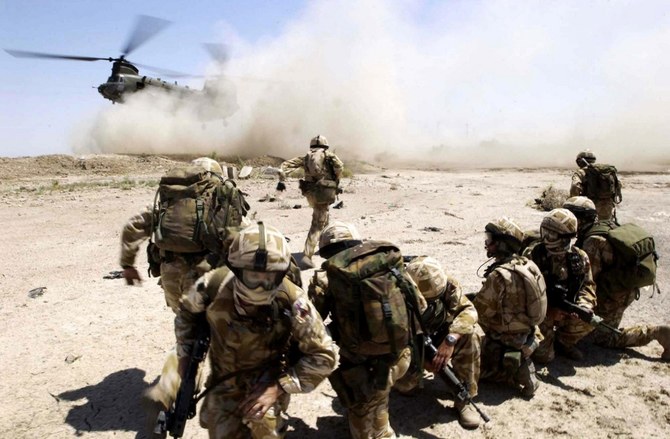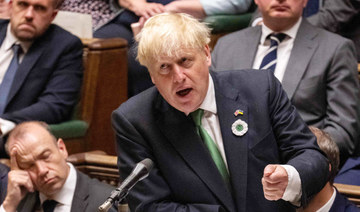LONDON: The UK Defense Ministry has offered to launch an independent inquiry into its handling of claims that Britain’s elite Special Air Service killed unarmed civilians during the war in Afghanistan, BBC News reported.
Amid a legal case brought against Defense Minister Ben Wallace, court filings suggest that there were significant flaws in the ministry’s initial investigation, led by the Royal Military Police.
The RMP investigated allegations that a single SAS unit in 2010-2011 unlawfully executed 54 Afghans.
But documents show that the senior officer in charge of the RMP probe, Brig. David Neal, was suspected of attempting to shut down investigations.
Neal was reportedly a “close friend” of the SAS officer in charge of the unit at the center of the claims.
The RMP official allegedly shut down investigations into eight separate cases of potential unlawful execution.
Neal’s deputy claimed, according to court documents, that he was placed under “political pressure” to avoid progressing investigations into senior SAS members involved in the unit.
The Defense Ministry’s legal chief, Peter Ryan, said in 2020 that the SAS’ explanations over the killings were “highly questionable, if not actually implausible.”
He warned that the RMP investigation was “unduly narrowly focused given the strength of insider concerns.
“Only a proportion of the large-scale shooting incidents over the six-month period in 2010-2011 were investigated in any detail.
“And there have been no investigations of earlier special forces deployments, during at least some of which even more Afghans were killed, again with relatively few weapons being recovered.”
Relatives of four men killed in a 2011 raid in Afghanistan reject the findings of the RMP probe and are engaged in a legal case against Wallace.
The ministry’s proposed new investigation into the way the allegations were handled would be led by a senior judge.
It would only examine the handling of the subsequent claims, however, as opposed to the legality of the killings, the ministry said, noting that the initial investigation had failed to find grounds for prosecution.
If prior investigations are found to be flawed, it could pave the way for the reopening of an investigation into the killings.
John Healey, UK shadow defense secretary, said that the proposed fresh inquiry was a “welcome first step.”
He added: “Australian special forces were investigated fully by a properly resourced inquiry backed by privacy and military expertise. There is no reason why this shouldn’t be possible in Britain.”
However, Tessa Gregory, who is representing an Afghan family in the case against Wallace, described the ministry’s proposed review as “so limited in what it can look at that it cannot bring the truth to light.
“Our clients desperately need answers to why their loved ones died and any investigation must fearlessly examine the underlying allegations of extrajudicial killings.”
A Defense Ministry spokesperson said: “The defense minister has decided to propose an independent review to be led by a senior judge into issues arising from the handling of allegations of misconduct that are the subject of these proceedings.
“The review will consider what lessons can be learned and make any recommendations for the future.”
























